Life
Sign up for our newsletter
We summarize the week's scientific breakthroughs every Thursday.
-
 Life
LifeTest drug stops Marburg virus in monkeys
Using a nano-size piece of RNA, scientists have stopped Marburg virus in monkeys.
-
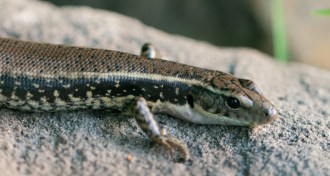 Animals
AnimalsThese lizards may be able to learn from each other
An experiment with skinks provides the first evidence of social learning in lizards.
-
 Oceans
OceansViruses might tame some algal blooms
The rapid demise of a giant, carbon-spewing algal bloom points to the influence of viral wranglers.
-
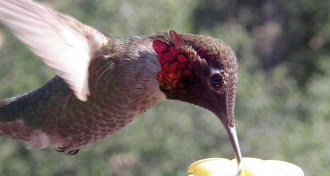 Animals
AnimalsHummingbirds evolved a strange taste for sugar
While other birds seem to lack the ability to taste sugar, hummingbirds detect sweetness using a repurposed sensor that normally responds to savory flavors.
-
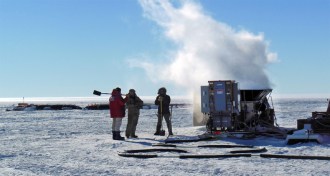 Ecosystems
EcosystemsLake under Antarctic ice bursts with life
Abundant microbes thrive in subglacial lakes deep under the Antarctic ice sheet.
-
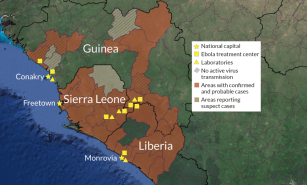 Health & Medicine
Health & MedicineExperimental drugs and vaccines poised to take on Ebola
The use of experimental drugs and vaccines against Ebola may turn the tide against an outbreak in Africa that has defied efforts to control it.
By Nathan Seppa -
 Animals
AnimalsOrcas and other animals may speak with complexity
From finches to orangutans, animal vocalizations may be more complex and not as distant from the structure of human language as previously thought.
-
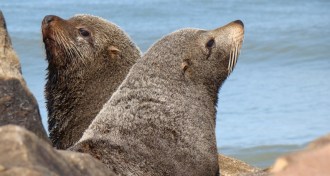 Genetics
GeneticsLong before Columbus, seals brought tuberculosis to South America
Evidence from the skeletons of ancient Peruvians shows that seals may have brought tuberculosis across an ocean from Africa.
-
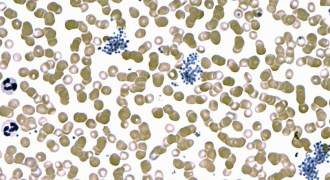 Life
LifeMalaria parasite’s invasion of blood cells tweezed apart
Tugging on malaria-causing parasite cells with laser optical tweezers suggest that the parasite cells interact only weakly with red blood cells and that the interactions could be disrupted with drugs or antibodies.
-
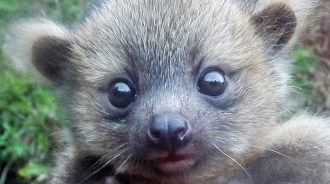 Animals
AnimalsOlinguito’s bio built by crowd-sourcing
Crowd-sourcing fleshes out the bio of little-known raccoon relative, the olinguito.
By Susan Milius -
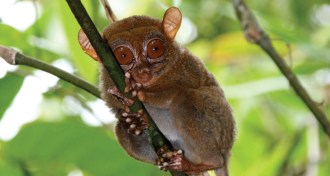 Animals
AnimalsNew subspecies of Philippine tarsier discovered
Genetic tests settle a taxonomic debate surrounding Philippine tarsier, one of the world’s smallest primates.
By Nsikan Akpan -
 Health & Medicine
Health & MedicineHPV vaccine protection lasts at least eight years
Immunization shields children from human papillomavirus infection for nearly a decade.